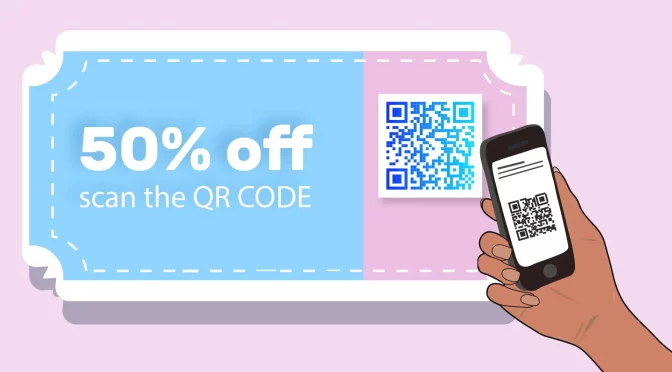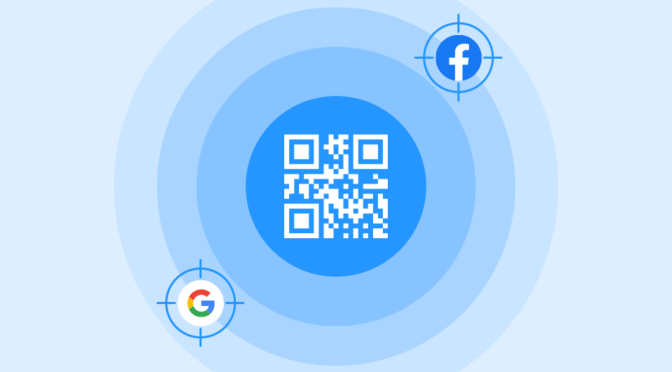The field of digital marketing is well established, with all the basics already set in concrete. As with all other fields, even this one will keep evolving with time, with new things being added to the marketing mix as the business world and technology evolve.
having a marketing strategy
The nature, process, functions, and objectives of omnichannel and multichannel marketing differ drastically. One could say that omnichannel marketing is an evolved form of multichannel marketing.
Omnichannel marketing surfaced as an improved digital marketing process that addressed and fixed all the issues that plagued multichannel marketing. It made the process of marketing more efficient and effective though it required more resources than previous methods.
However, the use of more resources is well justified by the long-term gains made by employing this process. Omnichannel marketing ensures the consumers have a seamless and consistent experience on all marketing channels.
So how does omnichannel marketing actually stack up against multichannel marketing?
The differences: Omnichannel vs. multichannel marketing
As the name suggests, multichannel marketing spans across many channels to ensure your digital marketing efforts reach potential consumers regardless of the platform or channel they’re using.
The usual scenario with multichannel marketing is that it employs different marketing strategies for different channels. The strategies are designed to make the most of each channels’ features. This results in every channel having a marketing strategy independent of one another and functions in its own sphere.

Omnichannel marketing also employs multiple channels to distribute marketing material similar to multichannel marketing; however, it differs in nature. At the core of omnichannel marketing is to prioritize user experience. The strategy and process involve steps to ensure the consumers have a good experience through a company’s marketing efforts.

The basic idea behind omnichannel marketing is to provide a consistent brand experience to consumers across all channels. The digital marketing strategies of all channels are kept in sync, and it is ensured that the consumers aren’t exposed to a drastic change in experience from one channel to another. If you prefer to choose the former one among omnichannel marketing vs multichannel marketing, tools like a CRM can significantly help strategize your omnichannel marketing without risk. CRM platforms usually allow marketing unanimously on various channels from the uni-screen dashboard, enabling you to deliver a quality customer experience.

How did multichannel marketing start, and where did it fall short?
Human society at present functions in a way no one in the past could’ve predicted. We have been connected since the dawn of the internet age, but now we’re connected at a whole different level. We use plenty of different types of devices and gadgets to access the same sites and services.
Be it a smartphone, smart TV, smart speaker, or wearable; every device can run through the internet and get things done for us. Marketers have had to adjust to this and dish out and manage ads accordingly. Every marketing channel is different from others and needs a different approach for marketing to be effective.
This was what gave rise to multichannel marketing. Marketers wanted to ensure the marketing campaigns had the broadest possible reach. To make this possible, they set up unique strategies to make the most of each marketing channel’s features.
Multichannel marketing did achieve its objectives, but as every new process runs into its own problems, so did multichannel marketing. Marketers solved old issues and faced new ones. This time it was regarding the consumer experience.
In theory, multichannel marketing had no drawbacks. Each marketing campaign ran on a specific channel and yielded positive results. However, while considering the big picture, the problems related to a consistent user experience became more evident.
Users are not restricted to a single channel, and they use different devices, i.e., different channels, to navigate through the internet. Users may see the advertisement while scrolling through social media and use either their phones, tablets, or computers to check the brand’s website for products.
Imagine switching from your smartphone to your PC, checking out the same website, and seeing a completely different setup and marketing approach; it feels out of place, right? That is what exactly happened with multichannel marketing.
Users witnessed drastic changes in their online experience, and it had a negative impact on brands’ businesses that employed a fragmented multichannel marketing approach. Despite the marketing campaigns being successful on their respective channels, producing positive results and impressions with a broad reach, none of it translated into good business for the brands.
How does omnichannel marketing deal with these issues?
Multiple channels of marketing exist in omnichannel marketing too. The main difference is in how the marketing is conducted and what are the focus areas. In omnichannel marketing, the main focus is to provide the best possible, seamless, and uniform experience to the users.
But why is it crucial to ensure a good customer experience? Here’s why:
- Customers do pay attention to small details.
- They value ease of navigation across platforms, devices, and channels.
- A consistently good experience invokes customers’ trust towards the brand.
- Trust, in turn, leads to brand loyalty among customers.
- A loyal customer base ensures year-on-year business growth.
The core focus of omnichannel marketing is to unify the marketing strategy on all channels. This process requires more business resources, but the ROI is significantly higher considering the inputs. However, formulating a unified marketing strategy that can make the most of all marketing channels can be tedious and time-consuming. That’s why partnering with a full-service digital marketing agency can be immensely beneficial.
What makes the investment worth is the impact omnichannel marketing has on your business. Imagine providing the consumers with a consistent experience, from marketing to products, to offline stores, purchases, after-sales services, etc. Some businesses also prefer to manage all social media in one place to further enhance the customer experience across different platforms. This is what omnichannel marketing enables a business to perform.
Here are some statistics that affirm the significance of omnichannel marketing:
- Almost 73% of the consumers use multiple platforms in the process of making a purchase.
- 71% of the consumers who shop offline use smartphones and computers to look for products online, make considerations, and then purchase at an offline store.
- Modern consumers expect more from businesses. 60% of the millennials and almost 70% of all consumers expect a unified and seamless shopping experience.

If omnichannel marketing is clearly the superior method of marketing, why isn’t everyone implementing it? Why does multichannel marketing still exist? The following points shall answer this:
- Omnichannel marketing requires a business to dedicate a significant amount of its resources to formulate and implement it. Not every company can invest heavily in marketing.
- Formulating a unified marketing strategy for all marketing channels is a hit-or-miss affair. A single approach may not work well for all channels. Ensuring all channels are in sync and offer a consistent experience takes a significant amount of time and effort.
- Online and offline integration for businesses with physical outlets requires even more investment as changes need to be made to the interior and showcasing to ensure the offline retail experience mimics the online one. However, QR Code marketing has surfaced as a cost-effective way to bridge the gap between the online and offline worlds.
- Keeping multiple channels synchronized is difficult. Every channel works at a different pace; some transmit information quickly, while some take time. This may lead to discrepancies in the timings of marketing activities across platforms. To help, consider using a headless CMS that can consolidate all types of content and deliver it to all digital channels.
- Managing customer experience involves dealing with various challenges, one of which might be addressing issues related to transactions. An effective strategy to safeguard against the repercussions of chargebacks can significantly enhance consumer trust and loyalty, much like ensuring a seamless omnichannel user experience.
Which approach of marketing suits your business better?
We’ll help you decide. Here are the things you need to consider before deciding on a strategy:
Consistency vs. wider reach – Every business has its own distinct objectives that it needs to fulfill. Depending upon which, you can either have a wider reach or provide a consistent experience to your consumers.
Multichannel marketing offers you the capability of reaching the maximum number of potential consumers using multiple marketing channels. This ensures maximum market penetration for your brand, which may be suitable for young businesses looking to grow.
Omnichannel marketing helps you ensure you’re providing an excellent and consistent experience to all your present and potential consumers across all platforms. This results in increased customer retention and brand loyalty. This approach may be well suitable for established businesses looking to consolidate their market share.
Costly and complex vs. cost-effective and easy – Formulating, integrating, and implementing an omnichannel marketing strategy can add to your operational costs. Cost isn’t the only factor here, as omnichannel marketing is complicated to set up, implement, and rework if changes are required.
Multichannel marketing is relatively easier to implement because different standalone strategies can be implemented for every channel. Moreover, there are no costs pertaining to channel-wide integration and formulating an all-encompassing marketing strategy. This makes multichannel marketing a cost-effective approach.
Technologically evolving vs. technologically consolidated – Omnichannel marketing is relatively new to the world of marketing, and hence there aren’t any all-in-one solution web tools available for implementing an omnichannel marketing strategy. This is one reason why it is so difficult, complex, and resource-intensive to implement this marketing approach. The majority of the marketers are still learning and understanding omnichannel marketing.
Multichannel marketing has been around for a while. Due to it not being a complex process, there is plenty of well-developed software, email management, and web tools to help a business formulate and implement a multichannel marketing strategy.
Guaranteed reach vs. hit or miss success – Multichannel marketing approach is well established, and implementing this strategy’s outcomes are consistent. This strategy guarantees reach maximization to the businesses implementing it.
Omnichannel marketing is a blanket approach that is usually difficult to get right. Though it offers significant returns when done right, the outcomes have been relatively inconsistent. Considering the investment required, omnichannel marketing is a risky undertaking if a business doesn’t get it right.
The Verdict
Omnichannel and multichannel marketing strategies have their distinct advantages and shortcomings. The decision of which one to opt for depends on the type of business, size, and objectives.
Omnichannel marketing is clearly superior among the two; however, it still needs a few years to go mainstream. Once it does go mainstream, the availability of software and web tools to aid in formulating and implementing an omnichannel marketing strategy will improve significantly.
This will reduce the complexities and efforts required to implement this approach. In the future, omnichannel marketing will provide more value to a business than the other approach. Until then, multichannel marketing will remain the better option for easy implementation and cost savings.
So which path will you choose for your business? Higher stakes and higher rewards or lower stakes and guaranteed wide reach?













